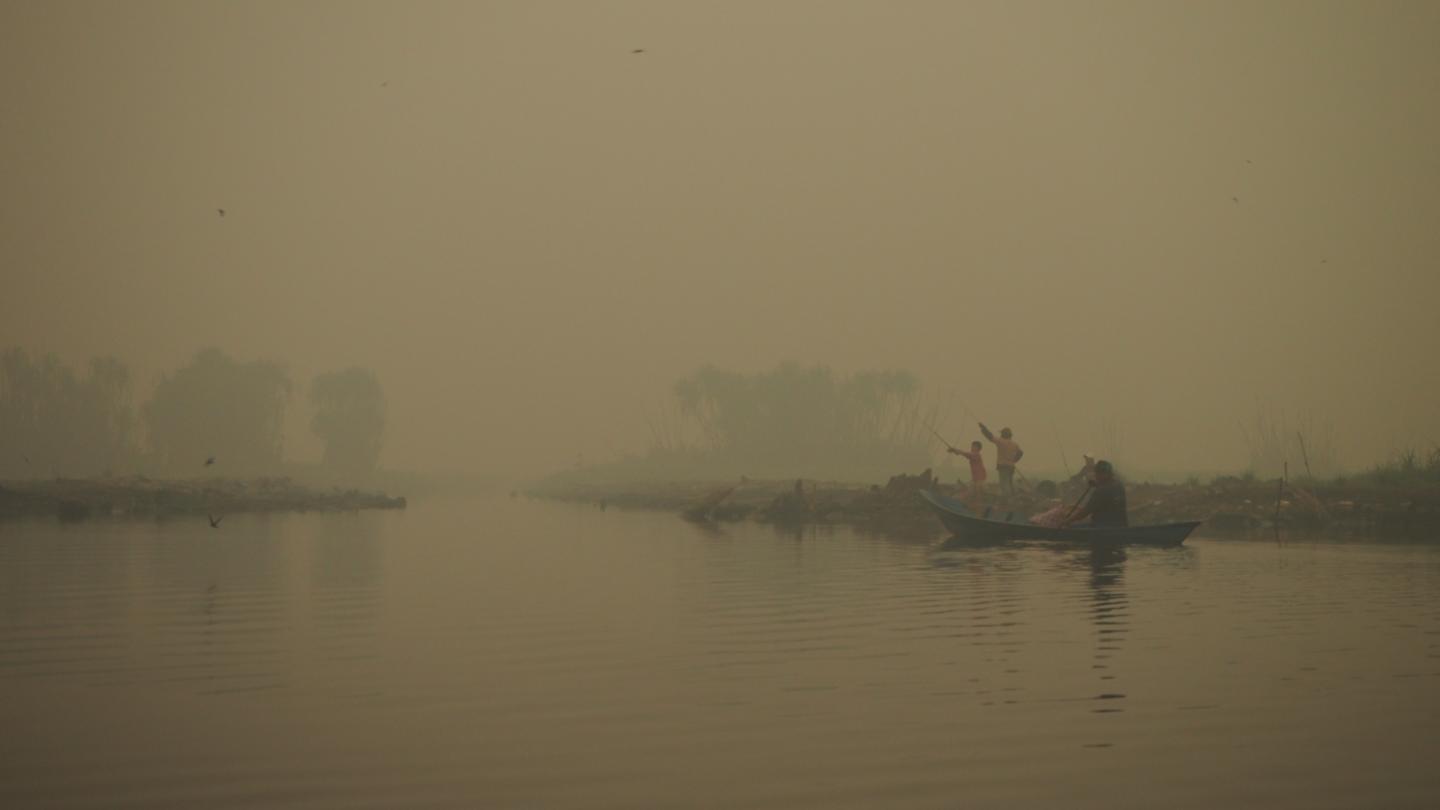
Credit: Suzanne Turnock / Borneo Nature Foundation
Conservation of tropical peatlands could reduce the impacts of the COVID-19 pandemic and the likelihood of new diseases jumping from animals to humans, researchers say.
The scientists reviewed existing evidence and concluded the high biodiversity in tropical peat-swamp forests, combined with habitat destruction and wildlife harvesting, created “suitable conditions” for emerging infectious diseases (EIDs) that could jump to humans.
COVID-19 did not emerge in a tropical peatland area – but HIV/AIDS and the joint-first case of Ebola both originated in areas with extensive peatlands.
The study also assessed the possible impact of COVID-19 on tropical peatland conservation and local communities – and identified “numerous potential threats” to both.
Led by the University of Exeter, the international study team comprised researchers from countries with large tropical peatlands, including Indonesia, DR Congo and Perú.
“We’re not saying tropical peatlands are unique in this respect – but they are one important habitat where zoonotic diseases (those that jump from animals to humans) could emerge,” said lead author Dr Mark Harrison, of the Centre for Ecology and Conservation on Exeter’s Penryn Campus in Cornwall, UK and Borneo Nature Foundation International.
“Tropical peat-swamp forests are rich in fauna and flora, including numerous vertebrates known to represent zoonotic EID risk, such as bats, rodents, pangolins and primates.
“Exploitation and fragmentation of these habitats, as well as peat wildfires (ultimately driven by human activity) and wildlife harvesting bring more and more people into close contact with peatland biodiversity, increasing the potential for zoonotic disease transmission.
“Our review shows that protecting tropical peatlands isn’t therefore just about wildlife and carbon emissions – it’s also important for human health.”
The study also notes “high impacts” of COVID-19 in some countries with large tropical peatland areas, some of which are relatively poorly resourced to tackle pandemics.
“Many communities in these areas are remote, relatively poor, disconnected, have limited infrastructure, sub-standard or non-existent medical facilities, and depend heavily on external trade,” said Dr Ifo Suspense, of Université Marien, Republic of Congo, who contributed to the review.
“As a result, the direct and indirect impacts of COVID-19 may be particularly severe in these communities.”
Dr Muhammad Ali Imron, from University Gadjah Mada in Indonesia, who was also involved in the study, said: “Additionally, major wildfires in peatland areas cause massive air pollution, particularly in South East Asia, increasing the threat to human health from respiratory diseases like COVID-19.
“In terms of the impacts on peatlands themselves, we reveal that conservation, research and training are all being affected by the pandemic, which may result in increased habitat encroachment, wildlife harvesting and fires started to clear vegetation”.
The study concludes: “Sustainable management of tropical peatlands and their wildlife is important for mitigating impacts of the COVID-19 pandemic, and reducing the potential for future zoonotic EID emergence and severity, thus strengthening arguments for their conservation and restoration.”
To help achieve this, the study identifies a number of opportunities and recommendations for researchers, field projects, policy makers and donors to help achieve this goal.
###
The paper, published in the journal PeerJ, is entitled: “Tropical peatlands and their conservation are important in the context of COVID-19 and potential future (zoonotic) disease pandemics.”
Media Contact
Alex Morrison
[email protected]
Related Journal Article
http://dx.





